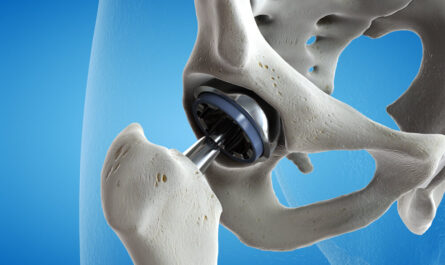What is Total Carbon Analysis?
Total Carbon Analyzer (TC analysis) refers to the quantitative determination of all forms of carbon present in a sample, including organic carbon, inorganic carbon, and total carbon. It is a common technique used in environmental monitoring and industrial quality control applications to test water, soil, food, and other types of samples. TC analysis provides a total measure of carbon without distinguishing between organic and inorganic forms.
Forms of Carbon Measured in TC Analysis
– Organic carbon: Carbon contained in organic compounds such as proteins, fats, carbohydrates, and other biological matter.
– Inorganic carbon: Carbon contained in non-living materials like carbonates, bicarbonates, and carbon dioxide.
– Total carbon: The sum of organic carbon and inorganic carbon present in a sample. It refers to all carbon regardless of form.
How TC Analysis Works
TC analysis works on the principle of high-temperature catalytic oxidation. The sample is placed in a combustion tube and heated to a very high temperature (680-950°C) in the presence of oxygen. Organic carbon in the sample is converted to carbon dioxide (CO2) by oxidation. Inorganic carbon is also converted to CO2 if present as carbonate or bicarbonate. The resulting CO2 is then separated, collected, and measured using an infrared detector, coulometer or other carbon detection method. The TC content is calculated from the amount of CO2 produced during combustion.
Applications of Total Carbon Analyzer
– Water/wastewater analysis: Total Carbon Analyzer is used to monitor effluent quality from wastewater treatment plants and check for contamination in drinking water sources. It determines the amount of organic matter that needs treatment.
– Soil analysis: TC content is an important indicator of soil quality and health. It helps assess the soil’s ability to sustain plant and earthworm life. TC analysis is performed in agricultural, environmental and ecological studies.
– Food testing: The TC level impacts food properties like texture, flavor and nutrient content. It is analyzed for quality control during food processing and production.
– Pharmaceuticals: TC analysis supports drug development by determining purity, stability and dosage formulation of active ingredients and excipients.
– Petrochemicals: It aids in refining processes by measuring carbon levels in crude oil, gasoline, jet fuel, lubricants and other petroleum products.
Applications in Specific Industries
Power Industry
TC analysis is widely used in coal-fired power plants to control carbon emissions and optimize combustion. It determines the carbon content of coal prior to combustion. During combustion, TC analyzers monitor flue gas from furnaces and boilers to detect uncontrolled carbon, ensuring compliance with EPA regulations. They help improve combustion efficiency and reduce greenhouse gas emissions.
Oil & Gas Industry
In oil exploration and production, TC analyzers determine the organic carbon content in drill cuttings and reservoir rock samples. This data helps geologists map potential oil and gas reservoirs. Refineries use TC analysis for feedstock characterization and quality testing of refined products like gasoline. Pipeline monitoring also utilizes TC analyzers to detect leaks and measure carbon in corrosion deposits.
Automotive Industry
TC analyzers support engine development and calibration by analyzing exhaust gases from vehicles operating under different conditions. They aid in optimizing fuel mixtures and combustion strategies to reduce vehicle emissions. TC analysis of lubricating oils verifies oil quality and detects soot contamination indicating engine wear. It ensures oils meet specifications for various applications.
Environmental Monitoring
TC analyzers play a key role in environmental protection efforts. Regulatory agencies use them to monitor levels of carbon emissions from industrial smokestacks, verify emission inventories, and check compliance with clean air standards. TC analysis of soil, sediment and surface water helps identify carbon pollution sources and assess environmental impacts of industrial activities.
Advantages of Total Carbon Analyzer
– Simultaneous measurement of all forms of carbon.
– High sensitivity – Can detect carbon levels as low as parts-per-million.
– Fast analysis – Results in 5-30 minutes depending on the instrument.
– Applicable to wide range of solid, liquid and gas samples.
– Provides consistent, reproducible readings when proper calibration and quality control measures are followed.
Total Carbon Analyzer is a valuable laboratory technique that supports many industrial manufacturing and environmental protection initiatives through quantitative carbon analysis. It helps optimize processes, ensure regulatory compliance, and assess carbon footprints across different sectors of economy.
About Author - Money Singh
Money Singh is a seasoned content writer with over four years of experience in the market research sector. Her expertise spans various industries, including food and beverages, biotechnology, chemical and materials, defense and aerospace, consumer goods, etc. LinkedIn Profile



